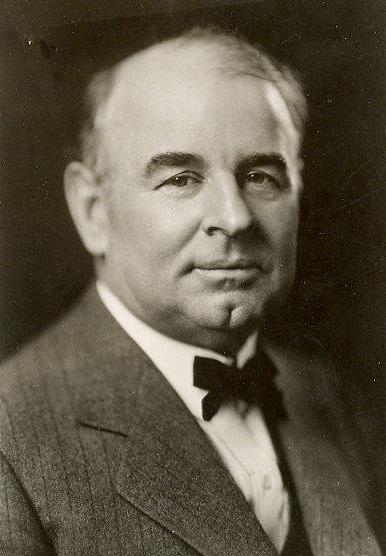Peter Celestine Reilly came to Indianapolis in 1895 to run a small tar-distilling plant on 737 Miley Avenue in the neighborhood. When the parent company instructed Reilly to close the Indianapolis plant and move to St. Louis, the Providence, Rhode Island, native offered to buy it.

In 1905, Reilly incorporated the Republic Creosoting Company. Reilly had already expanded his operations to Mobile, Alabama, and Minneapolis, Minnesota. Republic specialized in creosoting wood poles for utility work, pilings, and railroad crossties.
In 1921, the company’s Indianapolis plant was moved to a much larger facility on Maywood Avenue. Republic was renamed Reilly Tar & Chemical Company and expanded rapidly throughout the 1920s, adding wood preserving plants and tar refineries at sites from Renton, Washington, to Norfolk, Virginia. The company’s major acquisition took place during the depths of the Great Depression. On May 15, 1932, Reilly acquired the property of the International Combustion Tar & Chemical Corporation, which operated six tar refineries, primarily located adjacent to steel mills.

Increasingly over the years, Reilly Tar & Chemical’s focus turned to chemical pursuits. In 1930, the company opened laboratory facilities at 1500 South Tibbs Avenue in Indianapolis, a 120-acre site. During the 1940s, Reilly perfected a formula for synthetic pyridine, a coal tar extract that is used in several hundred different commercial applications. Among other things, pyridine is an active ingredient in products like dandruff shampoo and mouthwash. Following his death in 1952, P. C. Reilly was succeeded at the helm of the family-owned company by his son, brothers, and nephews.
During the next 20 years, Reilly gradually pulled back from the wood preservation and tar business, closing the Indianapolis wood treating plant in 1972. The company focused its concentration on its chemical products in Indianapolis and in Belgium.
By the 1980s, the Indianapolis site had come under scrutiny by the Environmental Protection Agency (EPA) because of serious contamination, which included groundwater that was found to contain benzene. Through the late 1980s and early 1990s, Reilly worked, with the oversight of the EPA, on various assessment and cleanup measures. This included addressing both soil and groundwater contamination, then capping the cleaned site with soil and gravel, and installing a groundwater containment system.
Reilly continued operations at the site until 2006 when the company merged with Rutherford Chemicals to form Vertellus Specialties Inc. Vertellus began working with the EPA solar-panel-maker Hanwha Q CELLS, Indiana’s environmental agency, and to develop a solar farm, which was completed in 2013. The solar farm, Maywood Solar Farm, was placed on 43-acres of the property where the wood treating plant once stood.

Help improve this entry
Contribute information, offer corrections, suggest images.
You can also recommend new entries related to this topic.
